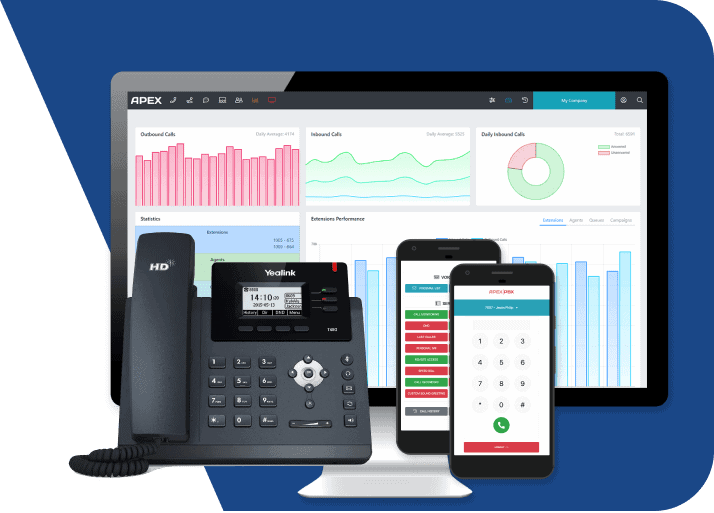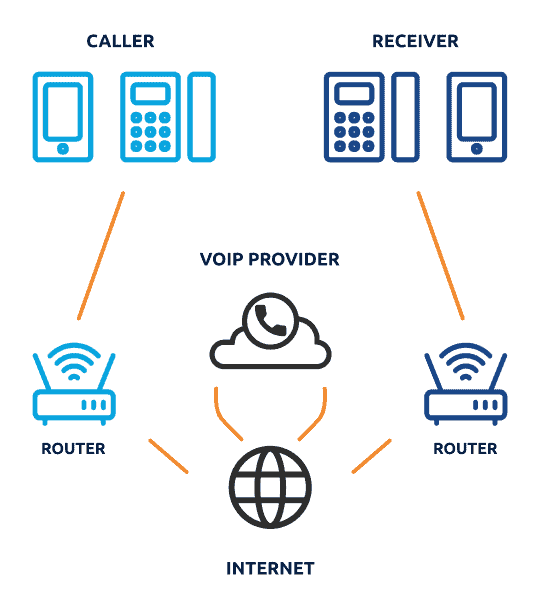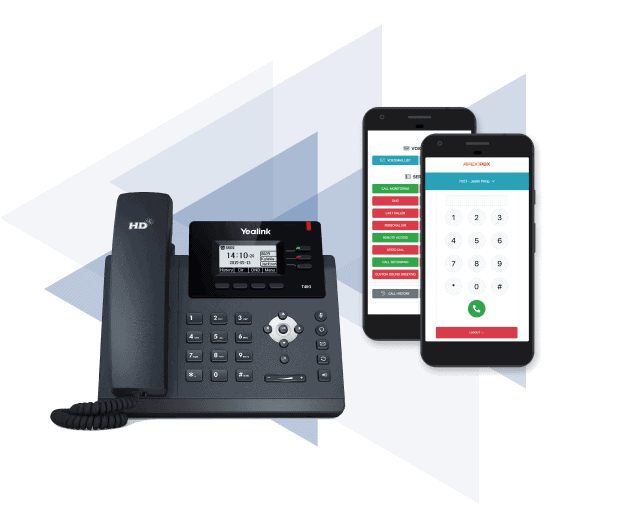What is VOIP?
The ultimate guide to a VoIP Phone System

Call us: 0800 055 7272
What is VoIP?
A Voice Over Internet Protocol (VoIP phone system) allows users to make voice calls using the internet, rather than a phone line. This results in a far less expensive and far more flexible communication method, enabling a variety of user-friendly features to be introduced alongside the basic call functionality.

Why Switch From ISDN To a VoIP System?
- ISDN lines will become redundant over the next few years
- A VoIP phone system offers a far more feature rich environment
- VoIP solutions have significantly lower call costs
- Flexibility; making office moves and expansion easy
- A VoIP phone system can be operated over a variety of platforms
How Does a VoIP telephone system Work?
- Codecs are compression technologies and have two components: an encoder to compress the files, and a decoder to decompress.
- VoIP works by converting your analogue voice signals into digital signals which are then transferred as data across your broadband line to the other person on the call
- So, when you make a call, your voice signals are compressed, sent via an IP and then decompressed almost instantaneously.

VoIP Hardware Or VoIP Software (App)?
VoIP Hardware
You’re likely to have come across a VoIP phone before. While there are different handsets – covering a variety of features depending on your needs – the majority simply look like a standard office phone. This means you’ll be able to transfer calls, access your voicemail, and use short numbers to communicate internally. Some of the hardware options will be more specialist than others; such as handsets specifically designed for receptionists, or IP conference devices.
VoIP Software
Softphones are becoming increasingly popular. This software-based solution is commonly referred to as a softphone, and can be used on a mobile device or a desktop. They replicate a physical handset in terms of interface to provide a familiar user experience. For the most part, a desktop app will require a headset and microphone, whereas a mobile app experience will be identical to making a normal call from your mobile.
Which VoIP solution is for you?
Variety is the spice of life, and there’s no reason why you can’t use your physical handset in conjunction with a softphone.

Advantages of a VoIP system
Work Remotely
As home working becomes more commonplace, having a phone system that supports remote working is integral. VoIP allows users to work from anywhere, so long as they are connected to the internet. This can be via hardware, or using a softphone (mobile or desktop app).
Scalability And Movability
Unlike a traditional ISDN line, VoIP makes moving office and/or upscaling your business a quick and painless process. Any additional handsets can be added within hours of a request being made.
Security And Privacy
A more secure and private method of making calls than using a traditional analogue telephone. VoIP has standardised encryption protocols that make your calls and data more secure than ever before.
Cost Saving
VoIP telephony significantly cuts down on the cost of domestic and international calls compared to traditional phone systems.
VoIP And Disaster Recovery
Whether or not a company allows employees to work from home on a regular basis, VoIP can be hugely beneficial in unprecedented situations when a business has to temporarily close its headquarters. In the case of power cuts, internet failure, acts of God or illness, VoIP makes relocating staff a far easier process. VoIP system features such as call forwarding to mobiles, as well as softphones, ensures there is no impact to a company’s ability to communicate internally or with its clients, even in the most exceptional of situations.
VoIP System Key Features
Softphone
Make and receive calls with call features via our user friendly mobile application
IVR Auto Attendant
Create bespoke system menus and call filtering for departments
Call Forwarding
Forward 01, 02, 03 numbers to a mobile or even a softphone application
Conferance Calling
Create conference rooms for an unlimited number of users
Call Recording
Record calls on demand and download or receive audio files via email
Voicemail
Create conference rooms for an unlimited number of users
Terminologies
A private telephone network used within a business
A set of communication standards for simultaneous digital transmission of voice, video, data, and other network services over the traditional circuits of the PSTN
The aggregate of the world’s circuit-switched telephone networks that are operated by national, regional, or local telephony operators
Data stored, managed, and processed on a network of remote servers hosted on the Internet, rather than on local servers or personal computers
The maximum rate of data transfer across a given path
A device or program that compresses data to enable faster transmission and decompresses received data
A piece of software that allows the user to make telephone calls over the Internet
Frequently Asked Questions
Your main telephone number can be forwarded instantly to a mobile number of your choice. For making outbound calls, the mobile application enables you to make calls as if you were working from your physical handset, displaying either your DDI or main number when dialling out.
Yes. When porting numbers, the process normally takes anything between 2-4 weeks. When assigning new numbers, the system can be set up within 3-5 working days based on you having the correct infrastructure in place (internet/cabling/network services etc).
Yes, you can. We can also supply you with ADSL & Fibre broadband.
Get A Free Quote
Receive a free quote today for our VoIP Phone System. Our helpful team can help find you the perfect VoIP solution for your business, whatever your requirements.
or call us on 0800 055 7272
See our wide range of VoIP handsets